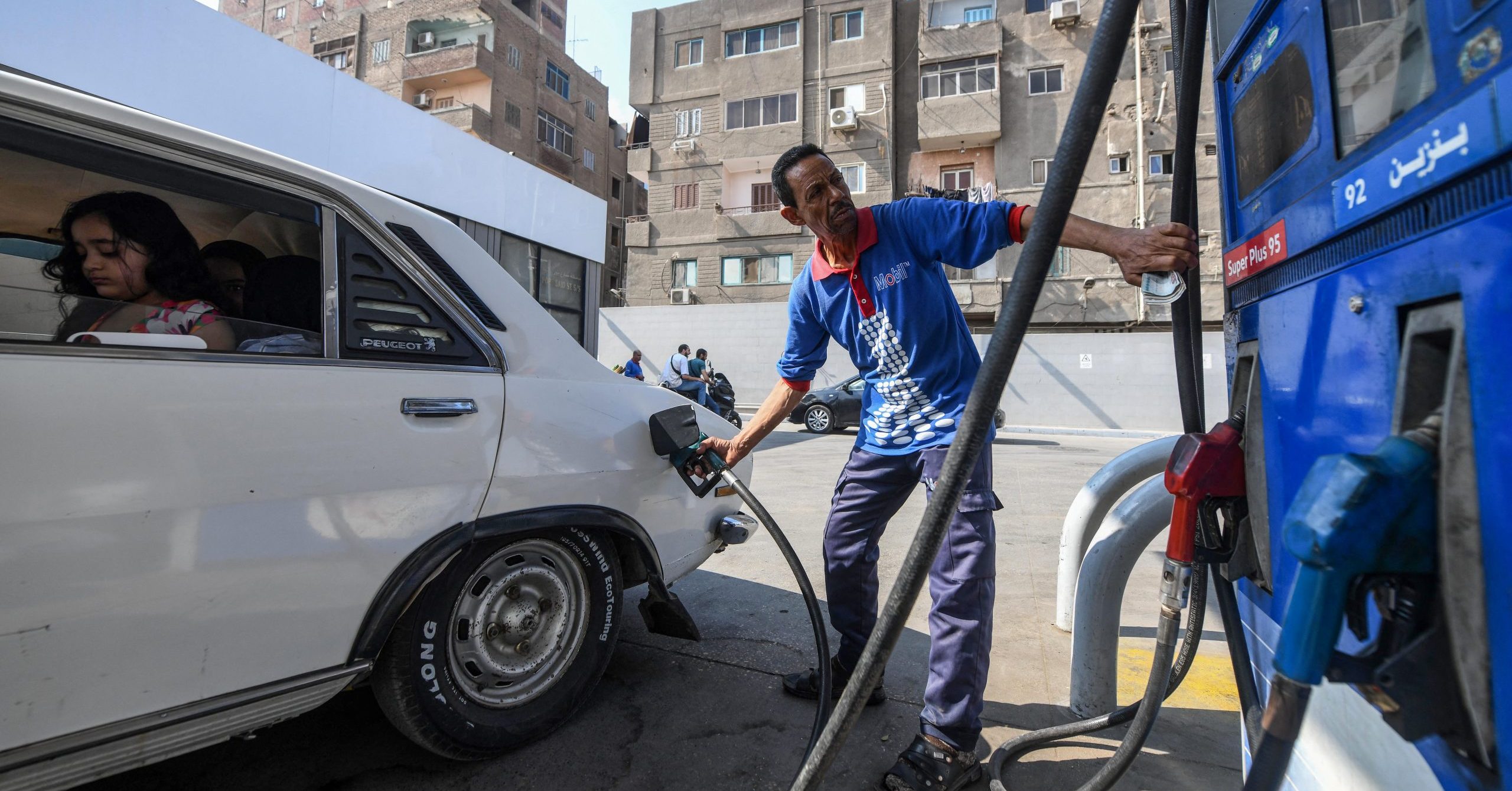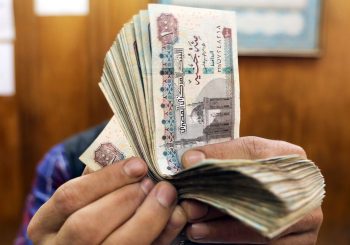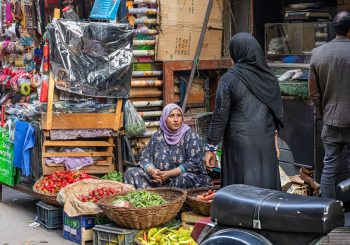“I feel defeated. I have three jobs now, yet I can’t live the life I had with one job two years ago,” Nourhan Abdelmagid, 28-year-old marketeer, told Egyptian Streets.
Rising prices have forced her to cut back on many activities she once took for granted, such as going out for basic meals. With rising inflation and fuel price hikes over the past few years, the cost of most items has become even higher, she noted.
Egypt raised fuel prices by roughly 12 percent on 17 October, marking the second increase this year. The latest adjustment, which lifted prices across several fuel categories by between 10.5 and 12.9 percent, comes after a nearly 15 percent rise implemented in April.
Early in October, Medhat Youssef, former deputy chairman of the Egyptian General Petroleum Corporation, stated that the Automatic Pricing Committee is expected to step in for the next adjustment, capping any subsequent increases at around 10 percent to avoid the steep surges witnessed previously.
Although the latest hike exceeds the previously signaled 10 percent average, the ministry said the new prices will stay in place for at least a year in an effort to preserve stability in the domestic market.
“Three years ago, I could fill my car’s tank for about EGP 250 (USD 5.25). Now it costs around EGP 650 (USD 13.66), and it only lasts four days of commuting,” Abdelmagid said.
According to the official statement, fuel prices in Egypt have increased to EGP 20 (USD 0.42) per liter for Gasoline 95, up from EGP 19 (USD 0.4), EGP 19.25 (USD 0.4) for Gasoline 92, up from EGP 17.25 (USD 0.36), EGP 17.75 (USD 0.37) for Gasoline 80, up from EGP 15.75 (USD 0.33), and EGP 17.5 (USD 0.37) for diesel, up from EGP 15.50 (USD 0.33). The price of compressed natural gas (CNG) for vehicles also rose sharply to EGP 10 (USD 0.21) per cubic meter, up from EGP 7 (USD 0.15).
Traveling from Giza (West of Cairo), where Abdelmagid lives, roughly 32 kilometers every day to her work in New Cairo (East of Cairo), she had to find ways to save some money. She now carpools with two coworkers who also own cars, taking turns driving their own cars each week and splitting the fuel costs.
“Even going out with my friends, we always try to take just one car,” she added.
Similarly, Reem Ismail, a 34-year-old human resources manager, takes advantage of her company’s hybrid work model and works from home as much as she can to save on fuel costs.
“I used to fill up my tank for EGP 500 (USD 10.5), and it would last a full week. Now, it barely gets me through three days,” she told Egyptian Streets. “I am scared even more of what’s to come.”
The latest rise in fuel prices is expected to ripple through the economy, pushing up the cost of goods and services. For many Egyptians, the strain is already profound.
While in March the government raised the minimum monthly wage for public and private-sector workers to EGP 7,000 (USD 147), up from EGP 6,000 (USD 126), the increase came as Egypt expanded its loan agreement with the International Monetary Fund to USD 8 billion (EGP 380.7 billion), which entails scaling back subsidies on fuel, electricity, and food, while reinforcing social support programs, which are required reforms to secure continued international assistance.
Meanwhile, Egyptian households continue to grapple with steep inflation, which averaged 28.3 percent in 2024 and closed the year at about 24.1 percent, alongside surging living expenses, fueled by previous fuel hikes, higher subway fares, and the sharp depreciation of the Egyptian pound against the U.S. Dollar. The Egyptian Pound has lost more than 70 percent of its value since 2022, eroding purchasing power across the country.
Market fluctuations have forced both Abdelmagid and Ismail to adjust their lifestyles to keep up with rising prices.
“I used to get takeaway every day at work,” Abdelmagid shared. “Now, I meal-prep at home and rarely order food, because takeout has become so expensive, and delivery fees just add salt to the wound.”
Ismail expressed that she stopped splurging on dining out and ordering specialty coffee every day.
“Trying to balance rising living costs while maintaining the same standard of living proves to be extremely difficult every day,” Ahmed Abdelsalam, a 39-year-old engineer, also told Egyptian Streets.
Living and working in Al Maadi, he is thankful for his short commutes. He refuels his car every 10 to 15 days and spends between EGP 1,900 and 2,700 (USD 39.9 to 56.7) per month on fuel.
“If I worked far from home, I would be filling up my car every three or four days, and that would wreck my budget,” he said, noting that in that case, using Uber Bus or transportation would be more sustainable.
If prices continue to rise, Abdelsalam said he may have to give up certain comforts, including owning a car. He added, “It would be tough to give up the comfort of owning a car, but if prices become unmanageable, I’d rather focus on maintaining my home, eating healthy, and saving a little for fun and travel.”
Ismail, however, views her car as an essential comfort, and one that remains cheaper in the long run than relying on ride-hailing apps.
“The alternative would be taking public transportation, and that would mean changing my entire lifestyle,” she said —a reality she hopes to avoid, and Abdelmagid agrees with.
During a press conference to inaugurate infrastructure projects in Minya governorate on 19 October, Prime Minister Mostafa Madbouly affirmed that fuel prices are expected to hold steady as long as global oil markets remain stable.
Meanwhile, Abdelmagid plans to find a work-from-home job if prices keep skyrocketing.
“I can’t afford the daily commute, not the fuel, not the Uber rides, not the food I’d need to bring, and not the office clothes I’d have to buy,” she said.







Comments (0)